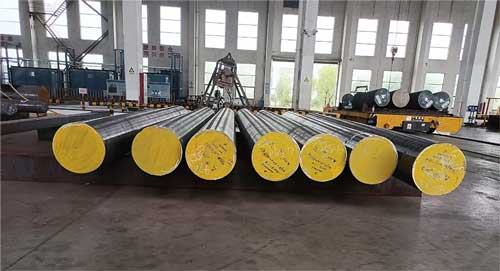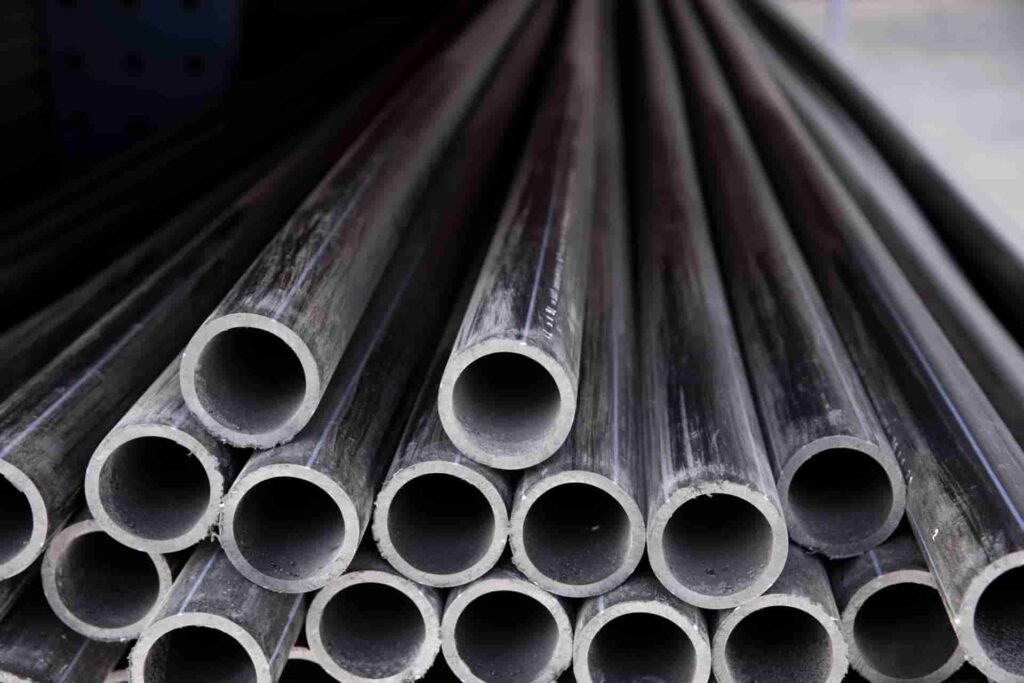Round tool steel is a type of steel that is used to make tools. It is characterized by its high hardness, toughness, and wear resistance. Round tool steel is used to make a variety of tools, including drills, taps, reamers, and saw blades.
In this blog post, I will discuss the following topics related to round tool steel:

What is round tool steel?
What are the different types of round tool steel?
How is round tool steel used?
How to select the right round tool steel for your application?
How to care for round tool steel?
What is round tool steel?
Round tool steel is a type of steel that is made with high-carbon content. The carbon content gives the steel its hardness and wear resistance. Round tool steel is typically made with a carbon content of 0.7% to 1.2%.
Round tool steel is also made with other alloying elements, such as chromium, molybdenum, and vanadium. These alloying elements improve the steel’s toughness and strength.
What are the different types of round tool steel?
There are many different types of round tool steel. The most common types include:
High-speed steel: High-speed steel is a type of tool steel that is used for cutting tools. It is characterized by its high hardness, toughness, and wear resistance.
Cold work tool steel: Cold work tool steel is a type of tool steel that is used for tools that work on cold materials. It is characterized by its high hardness and toughness.
Hot work tool steel: Hot work tool steel is a type of tool steel that is used for tools that work on hot materials. It is characterized by its high heat resistance and toughness.
How is round tool steel used?
Round tool steel is used to make a variety of tools, including:
Drills: Drills are used to make holes in materials.
Taps: Taps are used to thread holes.
Reamers: Reamers are used to enlarge holes.
Saw blades: Saw blades are used to cut materials.
How to select the right round tool steel for your application?

When selecting round tool steel for your application, you need to consider the following factors:
The type of material you will be working with: Different types of tool steel are better suited for different types of materials. For example, high-speed steel is a good choice for cutting steel, while cold work tool steel is a good choice for working with plastics.
The hardness and toughness requirements of your application: The hardness of the tool steel will determine how well it can cut or work the material. The toughness of the tool steel will determine how well it can withstand impact.
The cost of the tool steel: Round tool steel can range in price from a few dollars per foot to several hundred dollars per foot.
How to care for round tool steel?
To prolong the life of your round tool steel, you need to care for it properly. Here are a few tips:
| Type | Carbon content | Other elements | Main applications |
|---|---|---|---|
| High-speed steel | 0.9% to 1.2% | Tungsten, molybdenum, vanadium, chromium, etc. | Cutting tools |
| Cold-work tool steel | 0.7% to 0.9% | Chromium, molybdenum, vanadium, etc. | Cold-working tools |
| Hot-work tool steel | 0.6% to 0.8% | Chromium, molybdenum, vanadium, nickel, etc. | Hot-working tools |
Clean the tool steel after each use: This will remove any debris or chips that could damage the tool.
Store the tool steel in a dry place: This will help prevent rust.
Sharpen the tool steel regularly: This will help maintain the tool’s cutting performance.
Conclusion
In conclusion, round tool steel is a cornerstone material in the world of metalworking. Its exceptional combination of hardness, toughness, and versatility makes it the ideal choice for crafting a vast array of durable and reliable tools that can tackle even the most challenging tasks. So, the next time you reach for a drill, tap, saw blade, or any other tool that feels reassuringly solid in your hand, remember that round tool steel might be the silent hero behind its performance.
FAQ:
What are the advantages of using round tool steel?
Round tool steel offers a number of advantages over other types of materials, including:
High hardness: Round tool steel is very hard, which makes it ideal for cutting and working with materials.
High toughness: Round tool steel is also tough, which means that it can withstand impact without breaking.
Good wear resistance: Round tool steel is resistant to wear, which means that it can last longer than other materials.
High strength: Round tool steel is strong, which means that it can withstand high loads.
Good machinability: Round tool steel is easy to machine, which makes it a cost-effective choice for many applications.
These advantages make round tool steel a popular choice for a variety of applications, including:
Cutting tools: Round tool steel is used to make a variety of cutting tools, such as drills, saws, and knives.
Forming tools: Round tool steel is used to make a variety of forming tools, such as punches, dies, and molds.
Machining tools: Round tool steel is used to make a variety of machining tools, such as lathe tools, milling cutters, and drills.
Other applications: Round tool steel is also used in a variety of other applications, such as springs, bearings, and fasteners.

